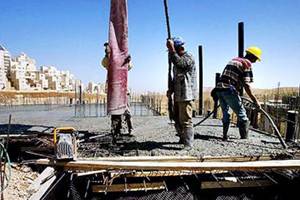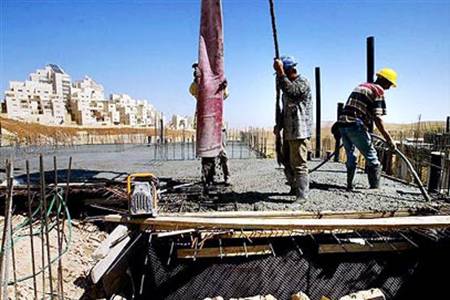
The annual report of the International Labour Office (ILO) on the situation of workers of the occupied Arab territories published yesterday (Friday) shows some improvement in the economic situation in the Occupied Palestinian Territory although the latter remains precarious, particularly in Gaza.
The report attributes this improvement to an accelerated growth rate and a slightly higher rate of employment which is, however, still very low by international standards. Average per capita incomes grew by 3.7 per cent over 2008 to reach US$1,390, still falling some 15 per cent short of their 1999 peak.
What’s more, as a consequence of the nearly complete Israeli closure of the Gaza Strip, growth has not been evenly distributed between Gaza and the West Bank, the report says. The continued conflict situation has hindered economic recovery, a decade after the onset of the second Intifada. “The longer the closure continues, the more it undermines future prospects of workers and their families, in particular of the young generation”, the report adds.

“The bleak economic, social and humanitarian situation in the occupied Arab territories, creates an environment in which workers’ rights and human dignity continue to be violated on a daily basis”, ILO Director-General Juan Somavia said, adding that “in the absence of other opportunities, many Palestinians are bound to seek work in the informal economy, often at the price of precarious working conditions and poor labour protection”.
According to the report, East Jerusalem is becoming more isolated from the rest of the West Bank owing to a policy of reducing the proportion of Palestinians living and working there. The report expresses deep concern about Israel’s recent announcement to continue with the expansion of settlements in East Jerusalem which “has cast a cloud on the beginning of proximity talks aimed at bringing about a resumption of substantive negotiations. The most recent military order regarding prevention of infiltration is perceived as a sword of Damocles by thousands of Palestinian families”.
Similarly, the report says, “impediments to movement and access constitute the most important barriers to economic development and the establishment of a normal social fabric in the occupied Syrian Golan. Syrian citizens face severe hardship in securing the employment and incomes that would enable them to maintain their Syrian Arab identity”.
According to the report, mainstreaming employment must become a principle underlying all government actions aiming to promote private sector growth. It highlights the fact that “employment must be the focus of a strategy based on a vibrant economy, decent work and good governance”. This is particularly evident in Gaza, under a siege that the report finds “… unacceptable, unsustainable and unproductive”, adding that “the longer enterprise development and productive employment are severely constrained, the more this will undermine the prospects of all Gazans”.
Finally, the report welcomes “an independent, democratic and viable Palestinian State living in peace and security with all its neighbors”.
To the annual report of the International Labour Office (ILO) on the situation of workers of the occupied Arab territories (53 pages, in English).


